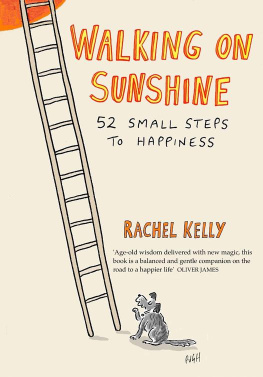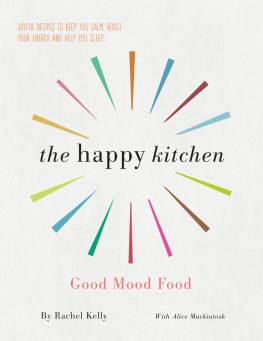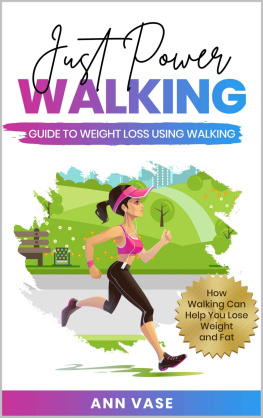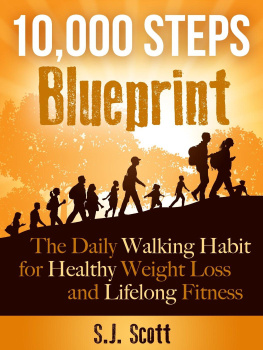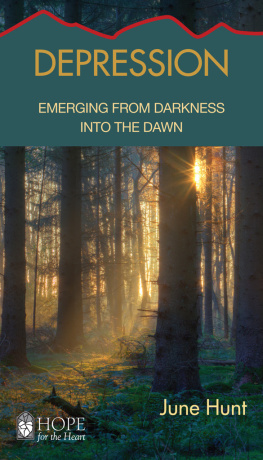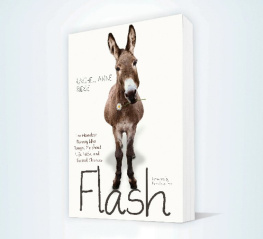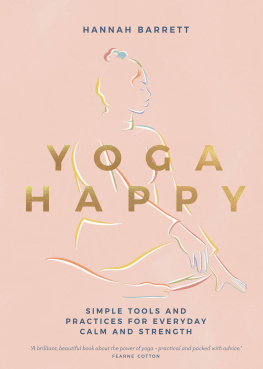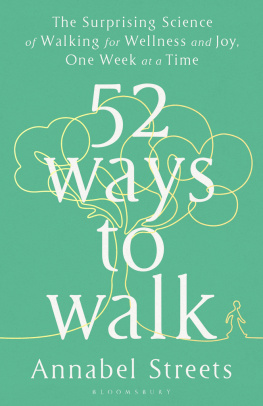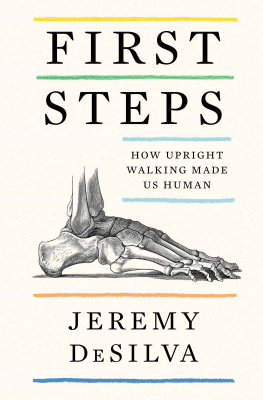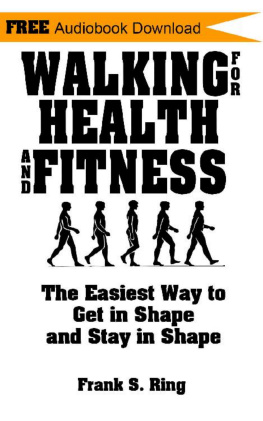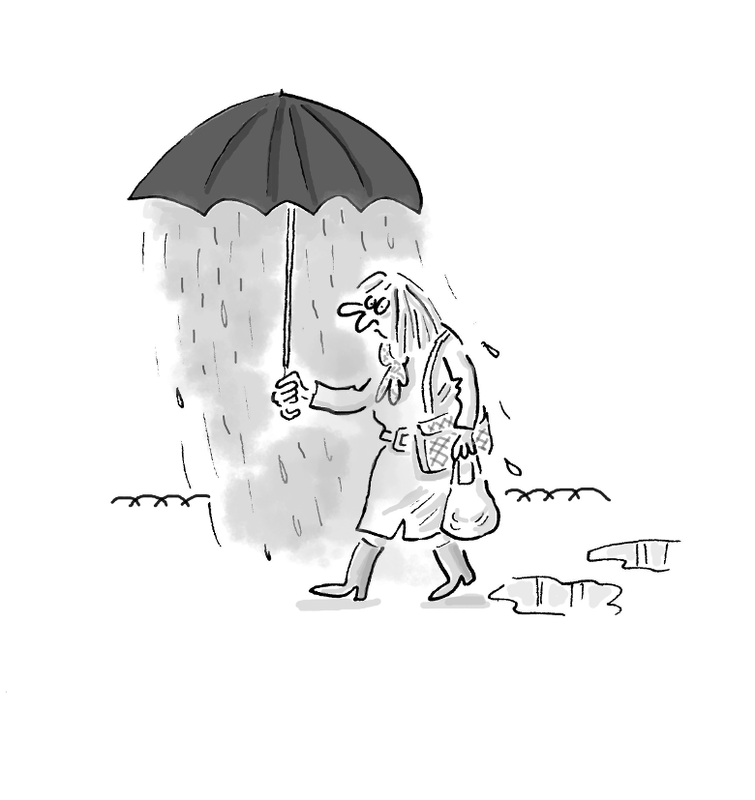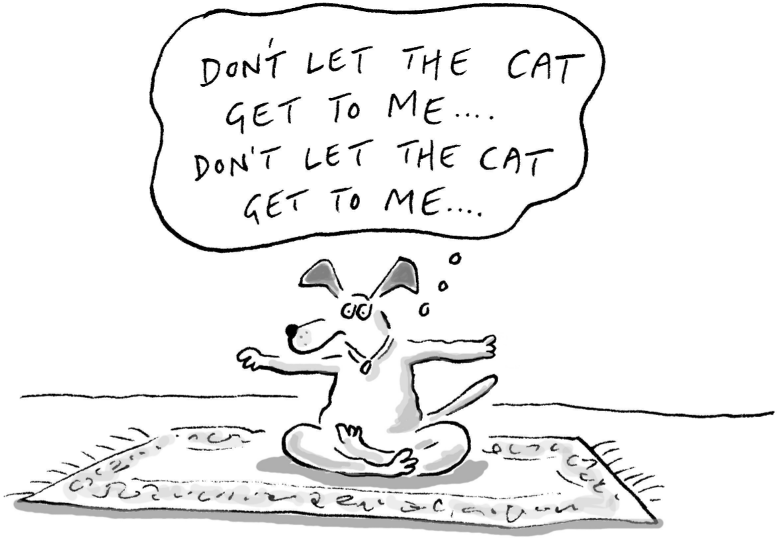In this book I share what Ive learnt about staying calm and happy in a diary of my year. For me the two are intrinsically linked: I often feel joyful as a result of feeling calm.
Last year, I published a memoir entitled Black Rainbow in which I described my past experience of debilitating depression and how I recovered from this serious illness. The book was based on diary entries, letters and emails that I wrote at the time.
Since then, Ive continued to get better. Ive also continued my habit of writing letters and keeping a diary. And this time, Ive been able to move away from the heavy stuff and focus on what helps me through what Freud called ordinary human unhappiness the inevitable ups and downs of everyday life rather than depression. Most days now, I feel steady and well and sometimes I even feel as if Im walking on sunshine.
Ive experienced this newfound sense of wellbeing partly because Ive been very lucky. When my memoir came out, I was fortunate to receive letters and emails from readers who were generous enough to share their own stories. Ive since tried out many of their suggestions for leading a happier life, some of which are included here. Other ideas have come from giving talks and running workshops for mental health charities, schools, universities and businesses.
The result is Walking on Sunshine, a collection of 52 small sanity-saving tools which have worked for me and proved my friends throughout the year. All of them have served as shortcuts to happier, more conscious living.
In general, Ive found that while these steps may not directly lead to happiness, it often follows as a by-product. Such is the paradoxical nature of happiness. You cannot simply become happy, like flicking a switch in your head. Rather happiness is often an indirect consequence of the way we think and our actions, whether its tending a garden or helping others. Ive also found that small steps work best. They are not only achievable but add up and have been the easiest way for me to make sustainable changes. Ive found that every time I try a more dramatic approach, I set the bar too high and end up feeling a failure.
Its proved helpful to be aware of the particular pressures of different times of year. As a mother, I find there are challenges associated with the academic calendar. And Christmas in particular is a season that Ive found needs a health warning on it. My state of mind is also affected by changes in weather and light.
The book is an eclectic mix, something of a salad bowl of ideas from which readers can pick and choose what works for them. To this end, there is space at the back of the book for you to write your own notes and reflections.
There are some thoughts on diet, bits on breathing, some philosophical nuggets, a spot of prayer and poetry, sayings that help me through, exercises that I practise and a sprinkling of mindfulness. This ancient Buddhist approach to life incorporates meditation and breathing exercises and has particularly helped me slow down.
So, too, has a basic biology lesson, which I will share with you here. If you fail to relax, your body is forced to rely on back-up energy courtesy of your adrenal system a handy trick when running from a predator or chasing prey, but less than ideal as a strategy for everyday life.
Your adrenal system runs on adrenaline and cortisol. These are the fight or flight hormones that keep you in a constant state of high alert. Cortisol also inhibits your brains uptake of the mood-elevating hormone serotonin which makes you more prone to anxiety. We are designed to accommodate stress, but only in short bursts. Thats why the frantic 24-hour stress that so many of us live with today is so damaging.
I hope one or two of my steps may help you slow down and open doors to a place of greater happiness and that you too may sometimes have that lovely feeling of walking on sunshine.
Rachel Kelly, London, September 2015
We are just back from a family trip to the Lake District. Printed below is John Clares Young Lambs, his celebration of spring as a time of renewal, when all sorts of things seem possible. This poem slows me down and makes me appreciate and be more attentive to my surroundings, which I tend to ignore when Im busy and overwhelmed.
The spring is coming by a many signs;
The trays are up, the hedges broken down,
That fenced the haystack, and the remnant shines
Like some old antique fragment weathered brown.
And where suns peep, in every sheltered place,
The little early buttercups unfold
A glittering star or two till many trace
The edges of the blackthorn clumps in gold.
And then a little lamb bolts up behind
The hill and wags his tail to meet the yoe,
And then another, sheltered from the wind,
Lies all his length as dead and lets me go
Close bye and never stirs but baking lies,
With legs stretched out as though he could not rise.
Clare describes the first signs of the unfolding season in loving detail. He sees little early buttercups unfold into a glittering star or two. The haystacks from the last harvest have been dismantled ready for a new crop, leaving only a shining remnant of hay behind. These winter leftovers are so out of place they seem like some old antique fragment in a scene where everything else is renewed and brimming with possibility.
A lamb bounds out to meet the poet and wags his tail. Another, basking in the sun, with legs stretched out as though he couldnt rise, allows him to walk right up. Spring, to Clare, is best represented by a newborn animal, so carefree that it remains flat on its back, enjoying the sunshine even when the poet approaches. Stopping for a moment to imagine Clares sunbathing lamb always makes me smile.
This March morning is ringing with promise. The skies are clear and the sun is bright. Its the sort of day that makes me want to straighten up the house and get the children to help. They are reluctant. Rather like Mole in The Wind in the Willows, their view is: Hang spring-cleaning!
I often use mantras to embed new ideas and a favourite of mine in such circumstances is: Turn control into curiosity.
Control is closely linked to anxiety. I usually try to tell others what to do as a response to feeling insecure myself, and, yes, ironically, out of control. And so now every time I find myself bossing others, I ask myself why. Ive found Im typically imposing my own agenda on those around me and dictating how I feel the world should run, rather than receiving the world as it is.
The much more relaxing option may be to stop, breathe and turn control into curiosity. Why, I wonder, do I want others to come and help me tidy up? What are my motives? The answer is that Im feeling unsettled. I want to enforce a sense of order on my surroundings so I feel calmer on the inside.
When I am able to overcome the urge to control, and instead trust that things will work out the way they are meant to, I can begin to enjoy the moment more fully. My family will tidy up, albeit in half an hours time. If someone challenges my assumptions, I can be curious rather than affronted. And theres something very liberating in that.

